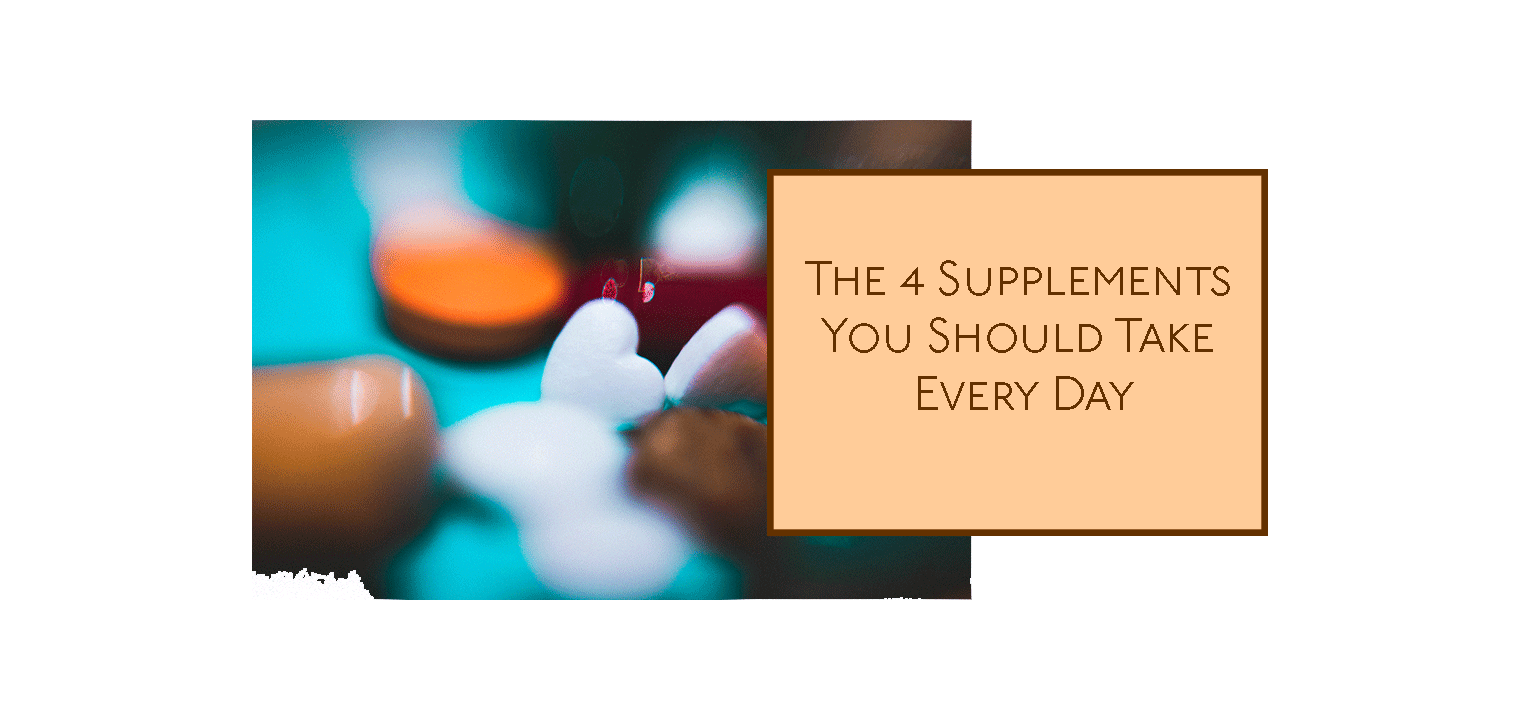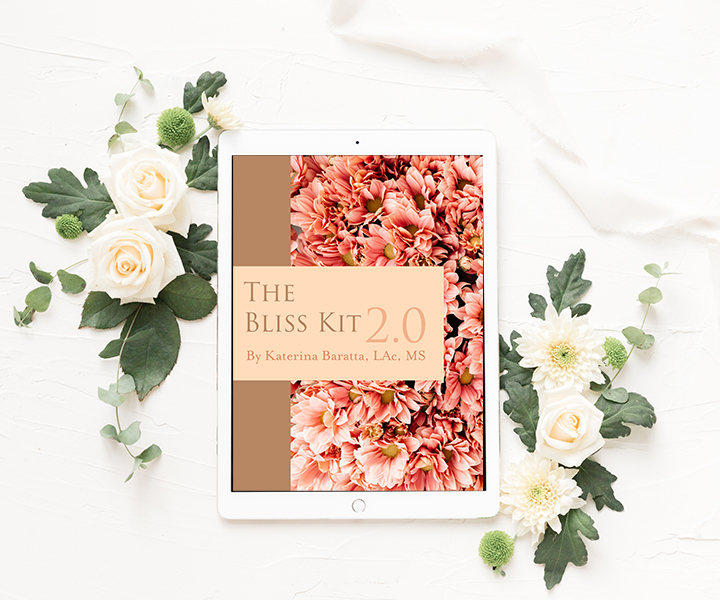
The supplement market is huge.
And it can be really tough to figure out which supplement will help you, and which will just be a waste of your money.
Wouldn’t it be nice if you could get all of the nourishment you need from your food and lifestyle instead of needing to take supplements?
But the truth is, between depleting food quality, environmental issues, and all of the other stressors that come with the average modern lifestyle, the vast majority of us need some extra support in order to really thrive.
And taking supplements is one of the easiest ways to give yourself a natural boost in the right direction.
Why Isn’t Eating a Healthy Diet Good Enough?
There are 4 big reasons.
First off, soil depletion.
Unfortunately, modern farming practices over the last 50-100 years have focused on quantity over quality.
Mass producers of produce have targeted their efforts at growing the prettiest, biggest, and most pest-resistant crops they can.
And while the results might be picture-perfect, there’s a lot left to be desired for us as health-conscious consumers.
Multiple studies have shown that those same practices are stripping the soil of vital nutrients like protein, calcium, phosphorus, iron, riboflavin (vitamin B2) and vitamin C (1, 2).
And plants draw their own nourishment up from the soil, so when the soil is depleted, so is your food.
Unless you are eating exclusively organic produce, grown by small farmers who practice regenerative agriculture, it’s almost guaranteed that you’re not getting as many nutrients as you want from your food (3).
The Modern Diet
Another huge issue is that most modern diets don’t include many nutrient-dense traditional foods.
For example, traditional cultures used to consume every part of the animals they ate, including organ meats, which are richer in nutrients like vitamin A than muscle meat.
Foods also used to be prepared differently.
In particular, whole grains, beans, nuts and seeds were mostly pre-soaked and often sprouted before they were eaten.
This removed phytic acid, which resulted in meals that were easier to digest and allowed the body to absorb more nutrients (4).
Because of the lack of refrigeration, many foods were also fermented, which wasn’t just a convenient preservation technique.
Fermentation actually stocks your gut with beneficial bacteria that help you digest food and absorb nutrients.
But most of us aren’t eating a whole lot of organ meats, whole grains, beans, nuts and seeds to begin with, let alone soaked and fermented foods.
Compromised Gut Health
Depleted soil quality and a move away from traditional foods isn’t just impacting how many nutrients we’re getting into our bodies.
These changes are also having a big and bad impact on our gut health.
Which means that the vast majority of modern people have issues breaking down and absorbing the nutrients they need.
An imbalance in your gut can lead to major health issues like inflammatory bowel disease, obesity, cancer, and autism (5).
And gut health also has an impact on your mood, the strength of your immune system, hormone health, sleep quality, and more (6, 7, 8).
So the more you can support your gut health, the better you’ll be able to absorb the nutrients you need, and the better you’ll feel in mind, body, and spirit.
And finally, there’s more to health than what you eat.
As someone with a physical and emotional body, you are constantly interacting with the world around you.
And everything you come in contact with —from the weather to a news report to the air and food quality you consume— all have an impact on the overall balance of your system as a whole.
That’s why there are 4 supplements in particular that I recommend to almost all of my patients.
Vitamin D
All vitamins are essential, but vitamin D has a few quirks that make it really special.
First off, vitamin D is fat-soluble.
Which means that your body can only absorb it from food if you’ve eaten enough fat to carry it.
The second, and most remarkable fact about vitamin D is that just like plants absorb sunlight for energy, you get the majority of your vitamin D from sunshine.
But because most of us aren’t hanging out outside all day, we’re not getting nearly enough vitamin D.
In fact, 42% of American adults have been shown to have vitamin D deficiency, and that rate skyrockets to 69% in Hispanics and 82% in blacks (9).
Vitamin D helps your body hang on to calcium and phosphorus, reduces inflammation, can reduce cancer cell growth, and helps to control infections. (10).
Vitamin D is also essential for mental health, reducing depression and anxiety, especially in people who suffer from seasonal affective disorder (11, 12).
So suffice it to say, it’s a good idea to supplement Vitamin D.
Fermented Cod Liver Oil
Cod Liver Oil is the superfood nobody wants to talk about because it sounds so gross.
But if you can get over the ick-factor, cod liver oil is one of the best gifts you can give yourself.
Rich in vitamins A and D, as well as omega-3 fatty acids.
We’ve already talked about vitamin D, but vitamin A comes with its own impressive list of benefits.
These include helping your immune system, bone growth, night vision, cellular growth, testicular and ovarian function (13).
And omega-3 fatty acids are really important too.
Helping with your heart health, relieving symptoms of rheumatoid arthritis, and slowing the progression of age-related macular degeneration.
But you can’t get those benefits by taking an omega-3 supplement.
Which is why adding a cod liver oil supplement into your daily routine is such a good idea (14).
Because cod-liver oil supplements are not artificial.
Cod-liver oil comes directly from the cod and is therefore a natural source.
And why should it be fermented?
Most oils are very sensitive to heat and easily go rancid.
The fermentation process protects the oils from rancidity, but it doesn’t make it immune, so cod liver oil should always be stored in a cool dark place.
If your cod liver oil tastes like stinky fish, it’s gone bad.
Probiotics
You might think you’re alone in your body, but you’ve got about 10 times as many bacteria in your gut as you have cells in your entire body (15).
And that’s a good thing.
Because most of those bacteria help you digest food and transform it into something your body can use.
Here are some fun facts:
- 70% of your immune system is housed in the cells of your gut
- 90% of your serotonin (sometimes dubbed the “happy” hormone) is produced in the gut
- 50% of your dopamine is made there too (16)
In other words, a healthy gut is essential if you want to be healthy and happy.
But if your gut health is off, you can eat all the nutrients in the world and get only a fraction of the benefit.
Taking a probiotic supplement helps to refurbish your gut with beneficial bacteria so you boost your digestive power (17).
And since digestion is the central component to your health, taking a probiotic supplement is a good idea.
Personalized Herbal Formulas
The final supplement I recommend to all of my patients isn’t actually just one supplement.
It’s a personalized herbal formula.
And the herbs I choose depend entirely on what’s going on for my patient.
So if you’re someone who has a lot of heat symptoms like acne, acid reflux, and angry outbursts, you’re going to end up with something very different than someone with cold in their system.
But what all of these herbal formulas have in common is that they’re designed to balance out your system so you can feel better in mind, body, and spirit.
And while your internal and external environments are constantly shifting, herbal formulas can help you float on those shifting tides instead of feeling like you’re constantly struggling to keep your head out of the water.
Now I’d love to hear from you.
What supplements have you taken in the past that have had the biggest impact on how you feel?
Leave a comment, I’d love to hear about your experience!
Resources:
- https://www.ncbi.nlm.nih.gov/pubmed/15637215
- https://www.scientificamerican.com/article/soil-depletion-and-nutrition-loss/
- https://www.organicconsumers.org/essays/regenerative-agriculture-sowing-health-sustainability-and-climate-stability
- https://www.ncbi.nlm.nih.gov/pmc/articles/PMC4325021/
- https://www.ncbi.nlm.nih.gov/pmc/articles/PMC4425030/
- https://www.ncbi.nlm.nih.gov/pmc/articles/PMC6389720/
- https://www.ncbi.nlm.nih.gov/pmc/articles/PMC5050011/
- https://www.ncbi.nlm.nih.gov/pmc/articles/PMC6290721/
- https://www.ncbi.nlm.nih.gov/pubmed/21310306
- https://www.hsph.harvard.edu/nutritionsource/vitamin-d/
- https://www.ncbi.nlm.nih.gov/pmc/articles/PMC6390422/
- https://www.ncbi.nlm.nih.gov/pmc/articles/PMC2908269/
- https://www.ncbi.nlm.nih.gov/pmc/articles/PMC2258476/
- https://www.nccih.nih.gov/health/omega3-supplements-in-depth
- https://www.ncbi.nlm.nih.gov/pmc/articles/PMC3983973/
- https://www.ncbi.nlm.nih.gov/pmc/articles/PMC2515351/
- https://ods.od.nih.gov/factsheets/Probiotics-HealthProfessional/




